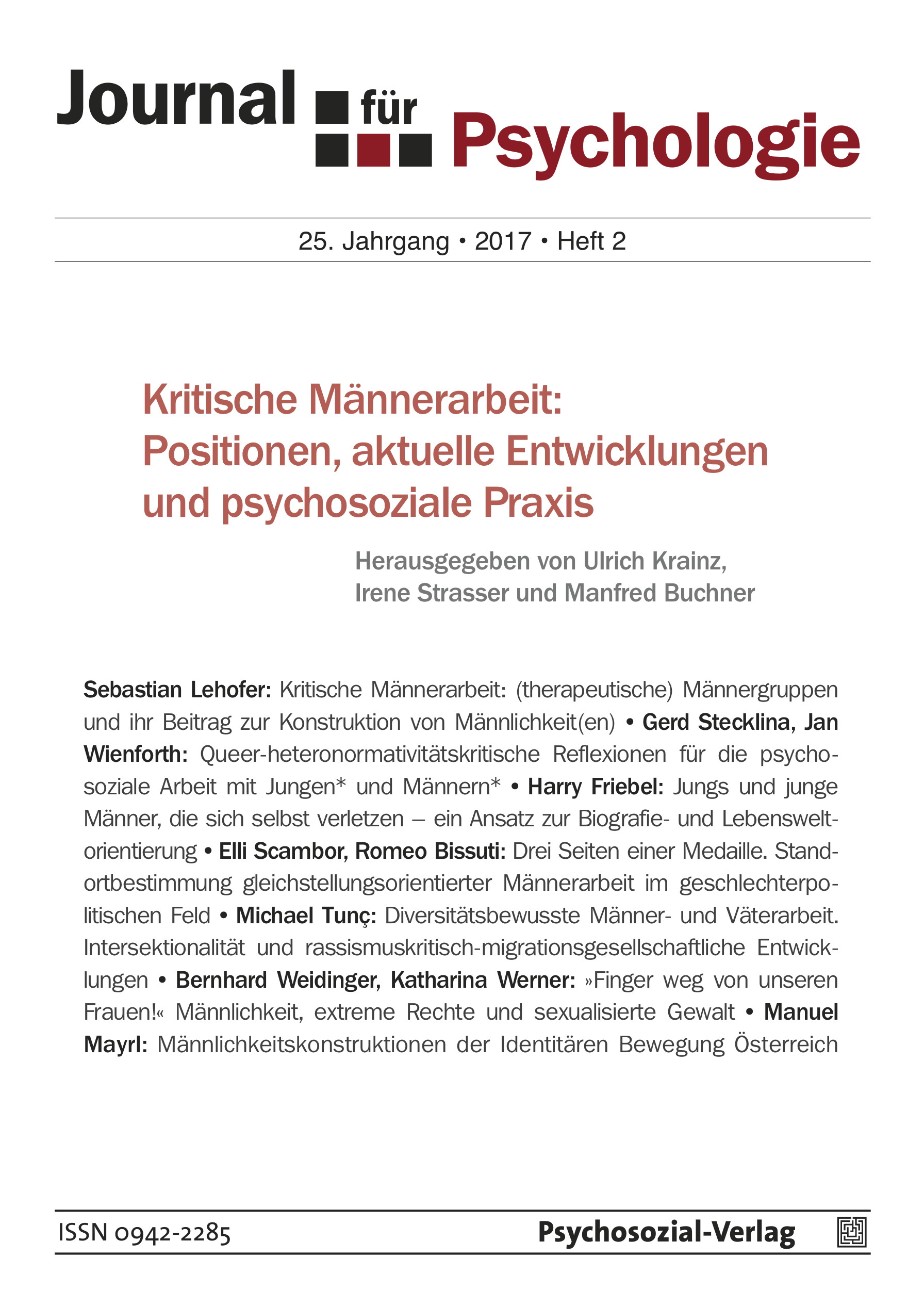Queer-heteronormativitätskritische Reflexionen für die psychosoziale Arbeit mit Jungen* und Männern*
Schlagworte:
Jungenarbeit, Männerarbeit, Geschlecht, queer, ProfessionalitätAbstract
Queertheoretische Fundierungen kritischer Jungen*- und Männer*arbeit finden sich in Theorie und Praxis noch wenig. Der vorliegende Text soll hierauf aufmerksam machen und Impulse für die queertheoretische Reflexion kritischer Jungen*- und Männer*arbeit geben. Hierzu wird nach einer Klärung zentraler Begriffe der aktuelle Forschungsstand skizziert. Darauf aufbauend wird ein Rahmenmodell konturiert, mit dem Ziel Anstöße zur queeren Reflexion kritischer Männer*arbeit zu geben. In der Dimension von Geschlecht als Strukturkategorie werden Geschlechterverhältnisse in ihrer Relevanz für psychosoziale Beratungsarbeit diskutiert und mit Konzepten zu Männlichkeiten verknüpft. Mit Blick auf Geschlecht als soziale Konstruktion wird verhandelt, wie in Organisationen und Konzepten queere Perspektiven verankert werden können und wie Aspekte des professionellen Handelns unter queeren Vorzeichen reflektiert werden können. Schließlich wird mit Blick auf Geschlechtsidentitäten erörtert, wie konflikthaft die Spannung zwischen Gesellschafts- und Subjektperspektiven in Bezug auf Geschlecht sein und wie dies systematisch reflektiert werden kann. Für alle Dimensionen werden Reflexionsimpulse vorgeschlagen.Veröffentlicht
10.11.2017
Zitationsvorschlag
Stecklina, Gerd, und Jan Wienforth. 2017. „Queer-heteronormativitätskritische Reflexionen für Die Psychosoziale Arbeit Mit Jungen* Und Männern*“. Journal für Psychologie 25 (2). https://journal-fuer-psychologie.de/article/view/441.
Ausgabe
Rubrik
Schwerpunkt
Lizenz
Diese Lizenz erlaubt die private Nutzung und unveränderte Weitergabe, verbietet jedoch die Bearbeitung und kommerzielle Nutzung. Weitere Informationen finden Sie unter: https://creativecommons.org/licenses/by-nc-nd/4.0/
Die Bedingungen der Creative-Commons-Lizenz gelten nur für Originalmaterial. Die Wiederverwendung von Material aus anderen Quellen (gekennzeichnet mit Quellenangabe) wie z. B. Schaubilder, Abbildungen, Fotos und Textauszüge erfordert ggf. weitere Nutzungsgenehmigungen durch den jeweiligen Rechteinhaber.



